Amid national theater crisis Sarasota arts groups are thriving after COVID losses
Across the country, professional theaters that once thrived in their communities have been scaling back, laying off staff, dropping programs, reducing performances, or even shutting down, leading to what has been dubbed a crisis in American theater that began when COVID forced many to go dark in 2020.
Cal Shakes in the San Francisco area is not producing shows this year, while Lookingglass Theatre in Chicago will be idle until next year and the Long Wharf Theatre in Connecticut no longer has a home theater. ACT Contemporary Theater in Seattle and Geffen Playhouse in Los Angeles are altering performance schedules, while staff has been cut at The Public Theater in New York, Brooklyn Academy of Music and the Dallas Theater Center.
The moves have created nervousness about the stability and future of the entire industry, with some wondering if they can’t survive, what about other theaters
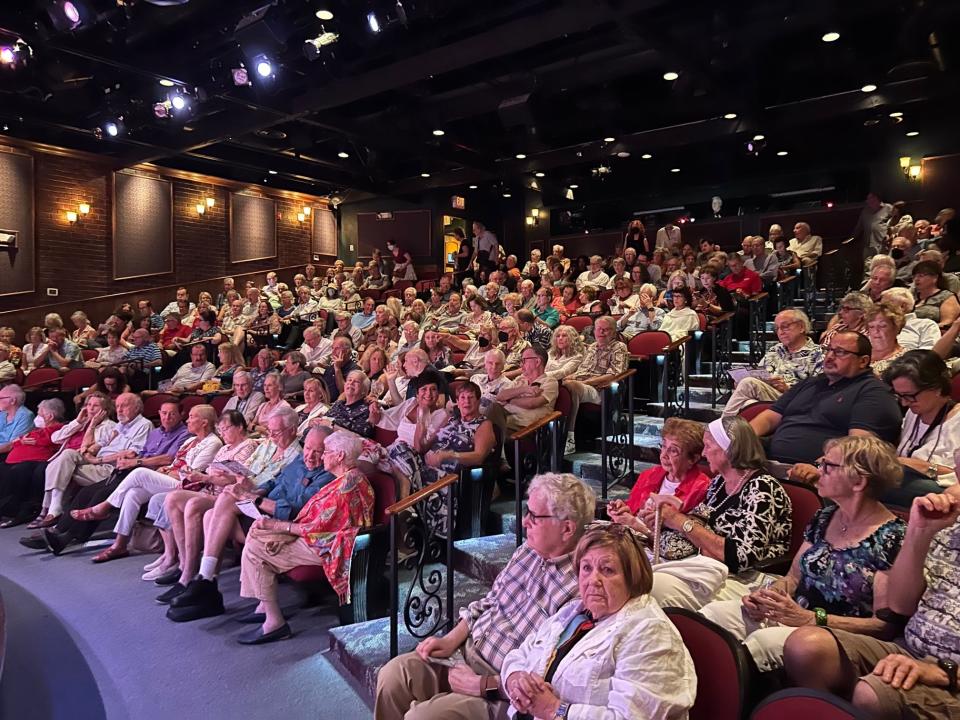
While the impact is being felt across the country, leaders of professional theaters and other performing arts organizations in the Sarasota area say that even as they are still recovering from the financial challenges posed by the COVID pandemic, the arts are actually growing in the Sarasota area.
Sarasota bucks the trend
For many companies, attendance has not yet returned to pre-pandemic levels, and there are concerns locally and nationally that patrons got out of the habit of attending live performances, discovering the ease and comfort of evenings spent at home watching streaming services.
In some communities, attendance is down as much as 30 percent, though the declines are considered much lower locally because of an influx of more tourists and new residents discovering the area’s vibrant arts scene.
Like most arts organizations across the country, local companies benefited from emergency federal funding through the Paycheck Protection Program and the Shuttered Venue Operators Grant, which allowed them to keep people working, even though some reduced the size of their staffs, at least temporarily.
“We have navigated together in a lot of ways and have done so pretty well,” Rebecca Hopkins, managing director of Florida Studio Theatre, said of the local arts groups. “That’s not to say organizations haven’t been hurt here, but we seem to be stabilizing across the board. That makes Sarasota very special. We are an outlier right now and it is because we are an arts town. Arts is a core of the Sarasota community and the community protected these arts organizations.”
That was evident in the tens of thousands of dollars in grants awarded by local foundations to support the arts, and the millions of dollars in ticket sales that were donated back by patrons after performances were canceled.
“Our community foundations gave extra during that time, doubled arts appreciation grants for everybody. It was really a time when the community came together to say we have to save this really important industry for our town,” said Julie Leach, executive director of the Westcoast Black Theatre Troupe.
At one point, her company faced returning as much as $900,000 in tickets for canceled performances because it did not have a system in place for credits for future performances.
“Only half the people asked for their money back,” Leach said. “That was significant. It meant I did not have a budget year when I had a loss. I was able to not lay anyone off.”
The same was true at most other organizations where patrons either got credits for future seasons – though that limited available revenue in subsequent seasons – or made donations of the tickets they had already purchased.
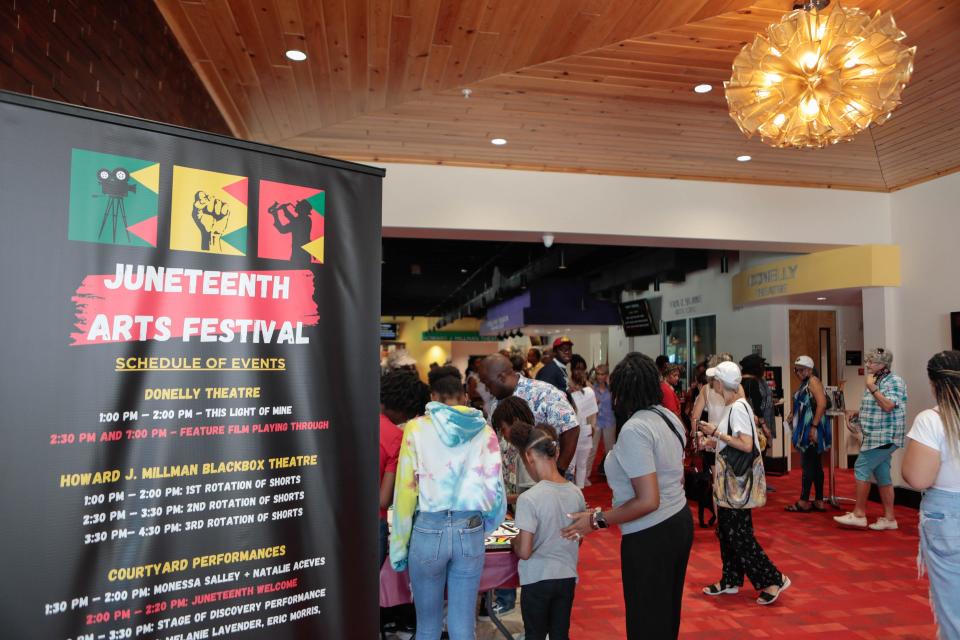
Widespread support for the arts
Joseph McKenna, president and CEO of the Sarasota Orchestra, said Sarasota is different than other cities and communities because “we’ve enjoyed population growth. While we’re all managing the post-COVID world, parts of the country are managing and lost population. We’re not back to where we want to be, but we have the benefit of population growth.”
Richard Russell, general director of the Sarasota Opera, said he is not seeing the same sense of crisis in the opera world as in theater. “Most of the companies are pulling back a little next year in recognition of the fact that our audiences are still in the process of coming back. But there are possibilities with lots of new patrons. At least 40 percent of our audience last year was brand new.”
After low attendance numbers last fall for its rarely staged and little-known “The Secret Marriage” by Domenico Cimarosa, Sarasota Opera is scaling back in November with a weekend of two concerts featuring the music of Giacomo Puccini. Russell calls it “fiscal responsibility. Last fall, we missed our ticket revenue budget goal pretty significantly. Looking at what we were originally thinking about producing for fall this year, in order to make it work financially, I would have to project ticket levels at what they were prior to the pandemic and I was hesitant to do that.”
Still, new subscription numbers “in terms of dollars are higher than I was looking at going back as far as 2017-18,” he said. And the response to last winter’s schedule was strong. “We had a fair number of sold-out or close-to-sold-out houses and people came. That was a big turning point when we started seeing full houses again.”
The Van Wezel Performing Arts Hall is “still coming back from COVID,” said Executive Director Mary Bensel. She said before COVID the hall sold about 87 percent of the capacity for all shows. For the last two years, the number was closer to 79 percent.
Bensel said she believes patrons got “out of the habit” of attending, especially when having to deal with frequently canceled or rescheduled shows during COVID. “But our subscriptions are up over where they ended last year.” That increase may be attributed, at least in part, to “Hamilton” being part of the hall’s Broadway subscription series next season.
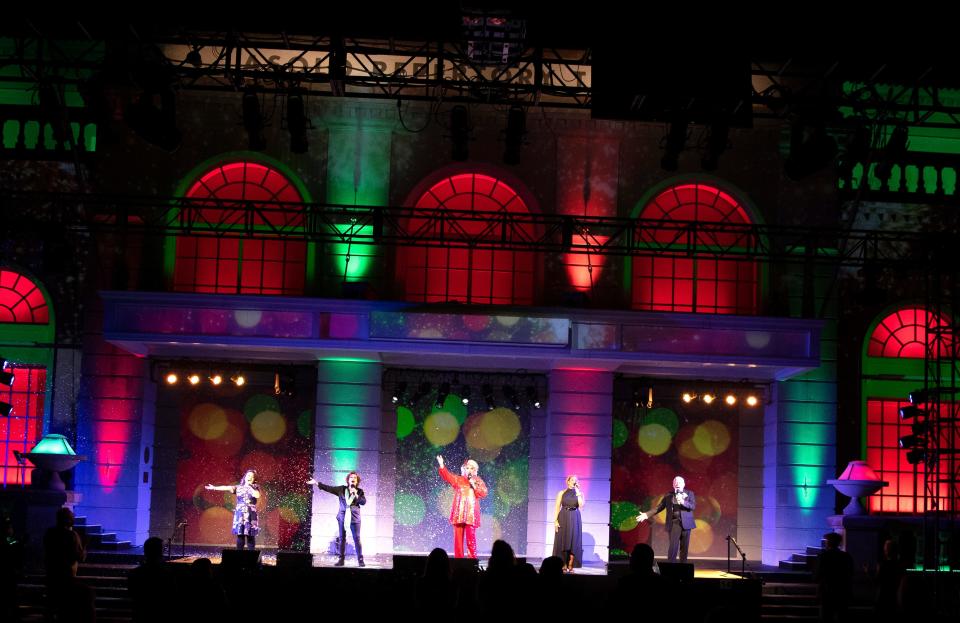
Other reasons for optimism
A number of factors, in addition to population growth, have played into the cautiously optimistic reports. Many arts groups managed to maintain some form of performances during the darkest days of the pandemic, like online programs by the Sarasota Ballet and Sarasota Orchestra, or outdoor shows staged by Asolo Repertory Theatre and the Westcoast Black Theatre Troupe, among others.
“The outdoor concert series for the Asolo got a terrific response,” said Peter Rothstein, who started his new job as producing artistic director of Asolo Rep on July 1. “Even if some audiences didn’t risk going out to engage for those events, we kept exercising our missions.”
Asolo Rep’s Managing Director Ross Egan, who also started July 1, said the theater enjoyed “banner numbers” in 2019 before the pandemic, and “the organization is in a healthy state to move forward but facing challenges. Audiences are still returning, donors are returning. We have space to grow, but all the trends indicate that the organization is moving in the right direction.”
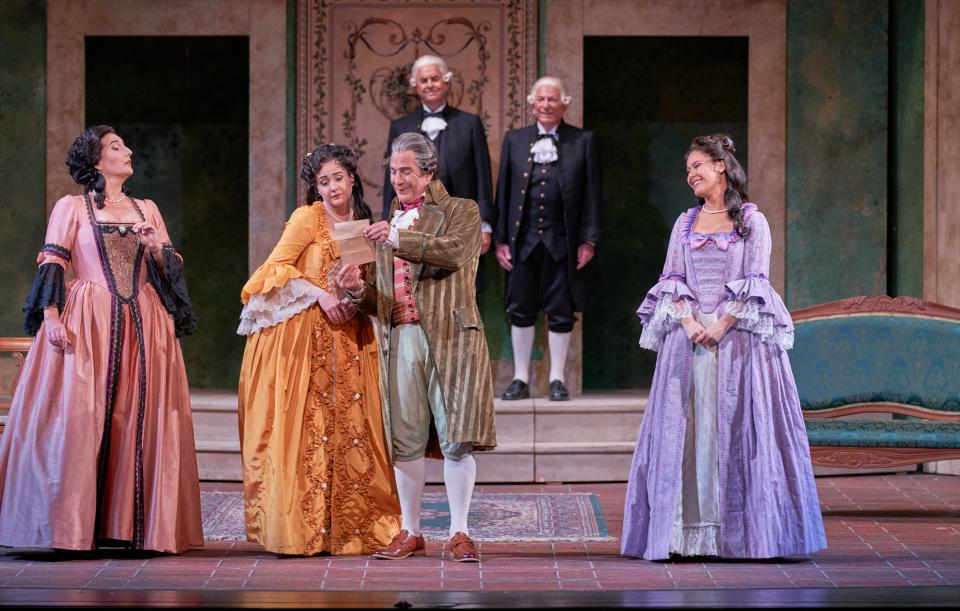
Subscription trends
Even before the pandemic, arts organizations were seeing a decline in patrons buying subscription packages, which often offer discounted prices and specific seats but lock people in to schedules months in advance. Many audience members now wait until closer to the date of a performance, which means they pay a higher ticket price but the arts group also has to spend more money on marketing.
At the Sarasota Orchestra, McKenna said there has been an increase in ticket sales for lighter concert programs like the Pops and Great Escapes series.
“We’ve seen really positive growth in our pops numbers, which is not uncommon. When the great recession came, we saw people wanted to come out and escape the world and forget about some of the anxiety that grips their lives,” he said. At Florida Studio Theatre, Hopkins said there also has been significant growth in subscriptions for its cabaret series since the pandemic. But sales are up overall.
“We extended seven shows in the last year. That’s unique,” she said.
Arts Newsletter: Sign up to receive the latest news on the Sarasota area arts scene every Monday
Female leaders bring new perspective: Female artistic directors taking charge in Sarasota area theater companies
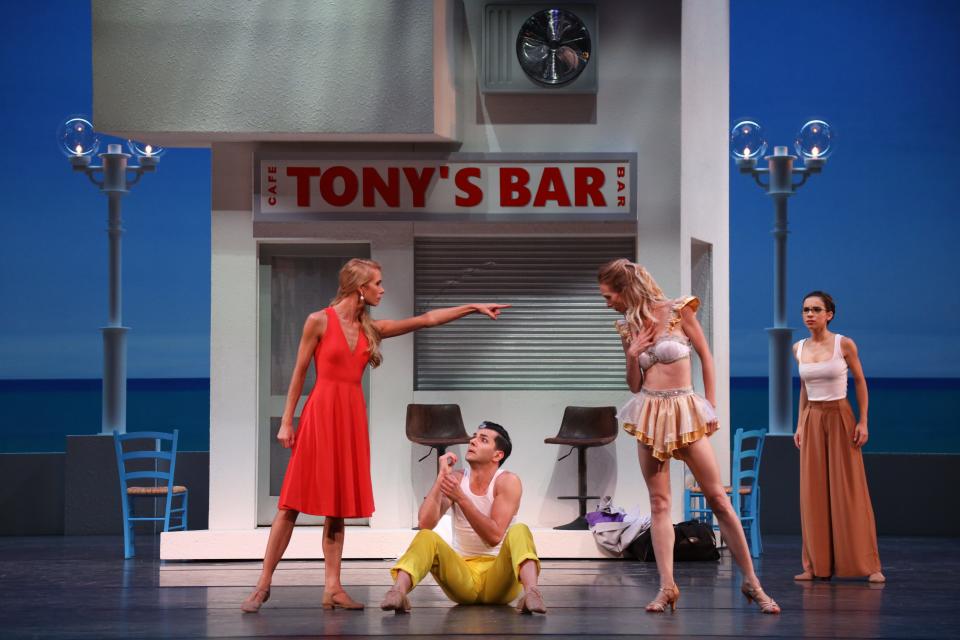
Being cautious and moving forward
While overall ticket sales are up for Key Chorale, among many other organizations, “we’ve had a season or so of less expensive programs. We’re in a better financial position now. Our donors stepped up and got more engaged with us.”
The chorale ensemble also is working to attract new audiences. “Any high school student can come to any self-produced concert for free. We have more outreach in schools, We’re doing more with community outreach with our guest artists.”
Joseph Volpe, executive director of the Sarasota Ballet who weathered a variety of financial storms during his tenure as general manager of the Metropolitan Opera, said the dance company is “doing very well. Subscriptions are doing very well, equal to all the years we’ve had,” with a growth in flex subscriptions that give patrons more choice in which performances they attend.
Population growth is helping, he said, “but we also have to find a way to attract the younger people who are coming to Sarasota. That’s a problem for theaters.”
And in order to maintain loyal subscribers and donors and attract new ones “you have to really invest and not scale back. We have not cut back on company members. We have not cut back on staff. Last year we did a world premiere of ‘A Comedy of Errors,’ which was a major investment and it was a great success and brought new excitement and interest to the company we haven’t had before.”
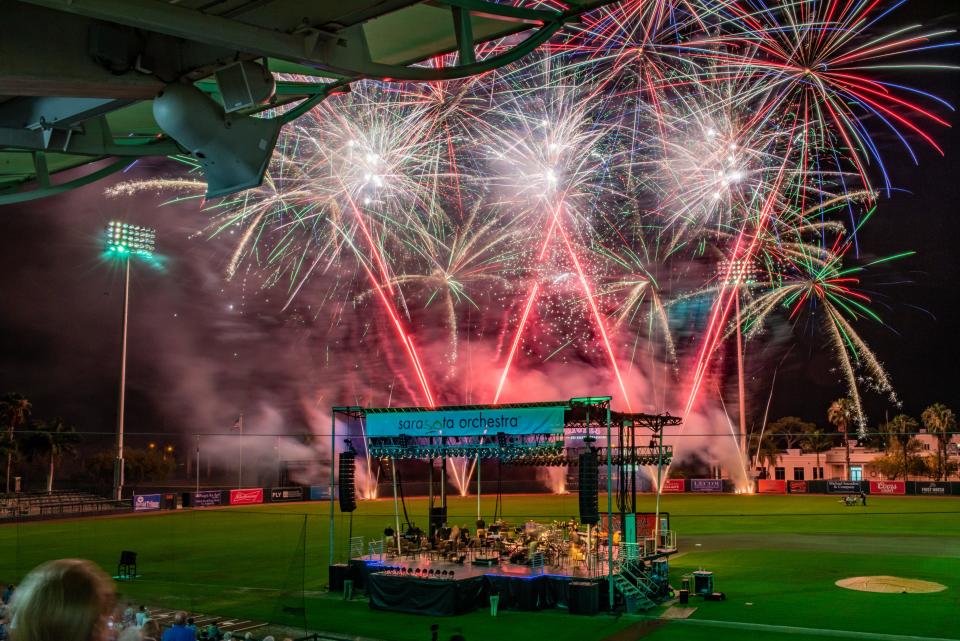
Arts groups have to give patrons a reason to get off their couches, spend money and attend.
“I’m a firm believer that you want to invest in that subscriber. You want them to sign on to your mission, sign on to what you’re programming to say ‘I trust this organization to do quality work,'” Rothstein said.
Richard Hopkins, producing artistic director of Florida Studio Theatre, said the local arts community has survived and, in many cases thrived, because it is “a different place” than other cities.
“This place is producing different arts and artists who are connecting with our audiences. Our diversity – we have people from all over the United States – has kept the arts organizations on their toes to meet that audience. We’re not doing it for ourselves or our friends,” he said. “That’s a habit they were falling into in some communities and that really hurt them. I think they got out of touch with the people they need to serve. You have to accept your audience wherever you find them. We need to fulfill their needs, not their wants. For us, that’s why our subscriptions are back almost to where they were pre-COVID.”
Follow Jay Handelman on Facebook, Instagram and Twitter. Contact him at jay.handelman@heraldtribune.com. And please support local journalism by subscribing to the Herald-Tribune.
This article originally appeared on Sarasota Herald-Tribune: As national theaters face crisis, Sarasota arts groups are thriving

